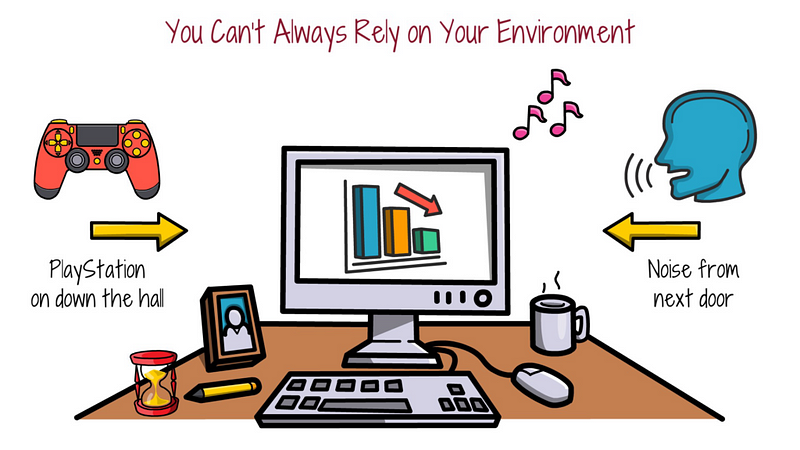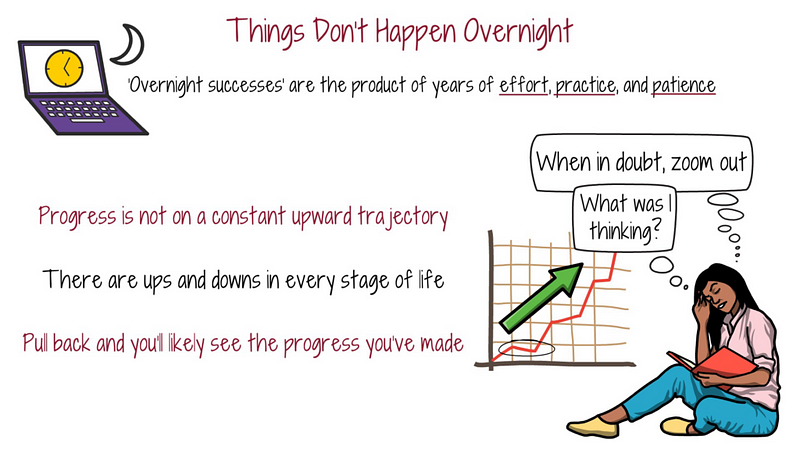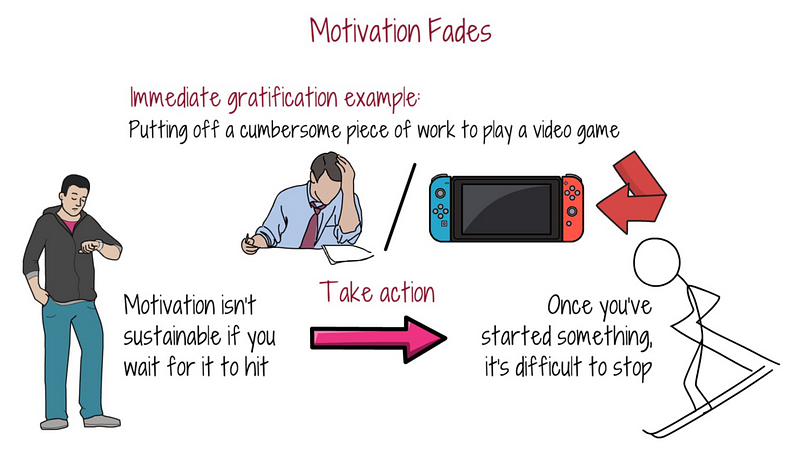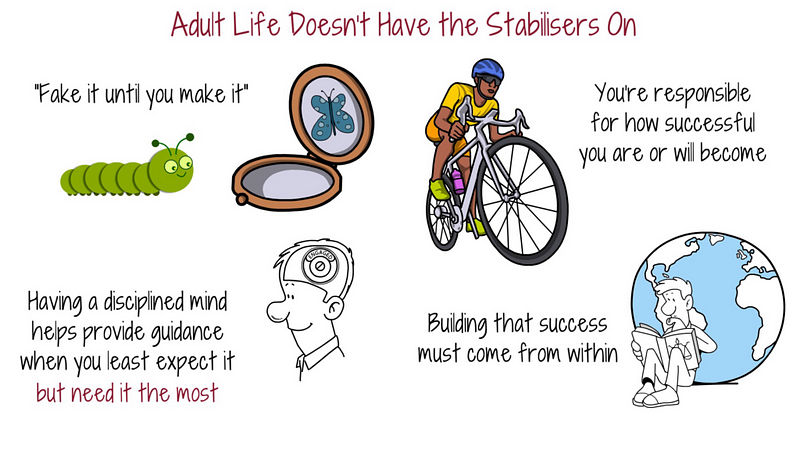Mastering Self-Discipline: Understanding Our Inner Struggles
Written on
Chapter 1: The Essence of Self-Discipline
Reflect on moments when you’ve thought, “I should really drink more water” or “I need to read more often.” While these may seem like minor annoyances, they highlight a significant aspect of our lives: self-discipline. It’s the consistent practice of positive habits that enhance our well-being. When everything is running smoothly—work is productive, mistakes are minimal, and personal relationships thrive—it’s often a direct result of self-discipline.
Every time you position yourself for success, you build on previous acts of self-control. Conversely, without that discipline, it’s all too easy to falter and disrupt your progress. Ultimately, you are your own accountability partner, which can lead to feelings of self-doubt if you’re not careful. It’s crucial to recognize this dynamic and avoid letting negativity take over.
Self-discipline functions similarly to a muscle; with dedicated practice, it can be developed and strengthened. This process begins with heightened self-awareness and an understanding of its importance and impact on your life.
Section 1.1: The Limitations of Environmental Control
Imagine you’re tackling an online course. You’ve optimized your workspace—using a Pomodoro timer, playing calming music, and eliminating distractions. Yet, external noises from neighbors or a roommate’s gaming session disrupt your focus. This scenario illustrates why relying solely on your surroundings isn’t feasible. While isolating yourself is an option, distractions are often unavoidable in urban settings or shared housing.
Self-discipline serves as a mental bouncer, allowing you to push through daily challenges. A disciplined mindset helps you view distractions as obstacles to overcome rather than insurmountable barriers. Preparation is key; knowing what typically diverts your attention enables you to respond effectively. Discipline also encompasses your reactions—whether you allow distractions to pull you away or bring your focus back. Understanding this is a critical first step in cultivating self-discipline.

Section 1.2: The Journey of Progress
During moments of self-reflection, when you feel dissatisfied with your current trajectory, remember the phrase: “When in doubt, zoom out.” This concept, originally related to stock market analysis, suggests that even if things seem bleak now, a broader perspective often reveals overall progress. Life is not a linear path; it includes ups and downs. By stepping back, you can appreciate how far you’ve come.
This perspective is crucial, especially when considering that meaningful achievements don’t materialize overnight. The notion of “overnight success” is often misleading, as it typically results from years of hard work and perseverance. For instance, Vera Wang, now a renowned designer, only entered the fashion industry at age 40 after years in journalism and figure skating. Such examples highlight the unpredictability of life and the necessity of patience in achieving success.

The significance of self-discipline in the pursuit of success cannot be overstated. It involves recognizing that the efforts you invest today will yield rewards in the future. The allure of immediate gratification can undermine motivation, making it crucial to focus on long-term benefits.
Chapter 2: The Role of Motivation in Self-Discipline
Motivation plays a vital role in sustaining a disciplined lifestyle. Rather than waiting for motivation to strike, taking proactive steps is essential; once you begin a task, it becomes easier to maintain momentum.
Consider the contrast between immediate and delayed gratification. Immediate gratification might involve choosing to play a video game over completing an important task, prioritizing short-term enjoyment. In contrast, delayed gratification means finishing your work first, ultimately providing you with more time to enjoy gaming later without guilt. By choosing the latter, you are investing in your future well-being, illustrating the importance of discipline in achieving your goals.

Chapter 4: The Importance of Self-Discipline
Even engaging with this article requires a level of self-discipline. If you’ve made it to this point, commend yourself for your commitment. This discussion has highlighted the crucial role of self-discipline in achieving success. Regardless of your aspirations, it serves as a reliable tool that provides stability during tumultuous times.
Self-discipline is essential for maintaining life’s rhythm and ensuring progress. Whether you commit to a regular exercise routine or resist distractions, you’re experiencing the benefits of self-discipline. It permeates every aspect of our lives, guiding us toward our goals.
This paraphrased content retains the essence of the original while ensuring uniqueness. The YouTube videos have been appropriately integrated, and all necessary adjustments have been made.
